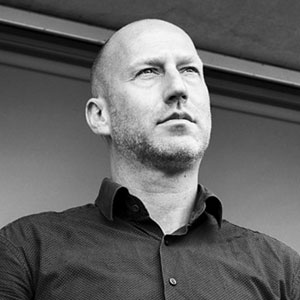[blur]Doctors Without Borders hoped that President Bush would make a personal appeal on Mr. Erkel’s behalf to President Vladimir Putin of Russia during their summit meeting at Camp David. Pressure from Doctors Without Borders has helped revive the investigation by the Russian government into the kidnapping, and it is now hoped that international pressure on President Putin will lead to an intensified effort to secure Mr. Erkel’s release.
The American officials who have called for his release include Senators John McCain of Arizona and Joseph Biden of Delaware.
The kidnapping is an example of the tremendous danger humanitarian workers are encountering in many parts of the world. In the most troublesome hot spots, including Iraq, Afghanistan and parts of Africa, the danger has become so great that lifesaving services have had to be curtailed.
”There’s a real fear now,” said Ian Levine of Human Rights Watch. ”At one time people in aid agency vehicles were allowed to go [unharmed] and were respected because they were doing something that was beyond politics and that was genuinely humanitarian. I think increasingly you get the sense that some warring parties regard humanitarian workers as soft targets. Kidnapping or killing them becomes a way of gaining attention and making a statement.”
For 607 days, Arjan thought each would be his last. His thoughts focused on the fact that he did not want to die and be buried in the Caucasus mountains. The most difficult part was to leave my parents in oblivion about my whereabouts. Somehow the men who kidnapped him felt sympathy about this and even promised to return his body to the United States in case he did not make it out alive.
After coming home, Arjan became an entrepreneur. It started with writing a book about his kidnapping experience. Nervous he could not write the book himself he first sought the help of a ghostwriter. Later he took over the project himself and wrote a best seller. This made him realize that the people we pass everyday at the grocery store, coffee shop or on the street are all hostages, bound by their fear, status, financial situations and many other things.
Arjan discovered inner freedom and continues to live in the mindset of never wavering from his mission. Now, these people don’t have to be kidnapped themselves in order to find this inner freedom. Of course, a big setback or crisis helps to make a next step, but it is not needed. If we want, we can start right away. The problem is many times to start, to do and persist.
Let his story inspire you to see the reality of your situation and find inner freedom.
“I believe in the freedom of mind. The freedom of creativity, courage and confidence to let go of things, and start new ones is opening up and creating new possibilities, both personally and professionally.” – Arjan van Erkel[/blur]
To See the Full Article, Click Here:

Arjan Erkel
Arjan was born and raised in Rotterdam went to the Radboud University Nijmegen to study cultural anthropology. After a short time at Robeco, MSF called if he wanted to go to the field for them and so he ended up in Tajikistan where he worked as a logistics manager for almost two years.
In 2007, Arjan wrote the book Samir. In this book, he follows the life of a young person convicted of terrorism in his quest and struggle to find their place in the world. This as a warning for what society would expect when we don’t stop to recognize the struggles our youth face. That same year Arjan also founded the Free a Girl Foundation together with Yolanthe Cabau, Evelien Hölsken and Roelof van Laar. The foundation frees underage girls from sex trafficking.


